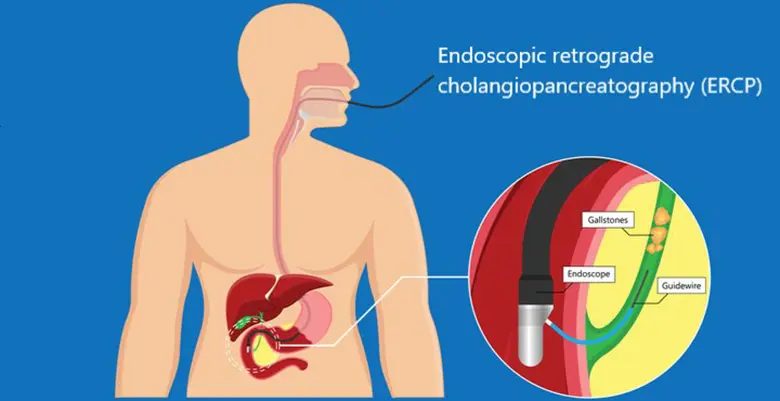
Dr. Piyush Gupta is one of the leading ERCP Specialist Doctors in North Delhi, offering advanced and personalized care for patients with bile duct, pancreatic duct, and gallbladder disorders. With extensive experience in medical and interventional gastroenterology, Dr. Gupta provides precise and effective ERCP treatment in North Delhi, ensuring accurate diagnosis and relief from complex gastrointestinal conditions.

ERCP is a specialized medical procedure used to diagnose and treat problems of the bile ducts, gallbladder, and pancreas. It combines the use of endoscopy and X-ray imaging to identify blockages, stones, or narrowing in the bile or pancreatic ducts.
The main purpose of ERCP is to both diagnose and treat conditions affecting the bile ducts, gallbladder, liver, and pancreas. It can identify blockages, stones, strictures, or tumors and also allow for immediate treatment such as stone removal or stent placement.
No, ERCP is usually not painful. It is performed under sedation or anesthesia to ensure patient comfort. Some patients may feel mild bloating, sore throat, or discomfort afterward, but these usually subside quickly.
The procedure typically lasts 30 minutes to 1 hour, depending on whether diagnostic imaging alone is done or additional therapeutic procedures (like stone removal or stent placement) are performed.
Although ERCP is generally safe, potential risks include pancreatitis (inflammation of the pancreas), infection, bleeding, or very rarely, perforation of the intestine. These risks are uncommon and are usually outweighed by the benefits of treatment.
Patients are usually asked to fast for 6–8 hours before the procedure. Blood-thinning medications may need to be paused temporarily. The doctor will provide specific preparation instructions, including any adjustments to existing medications.